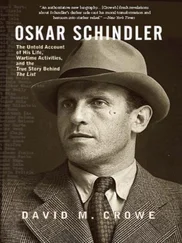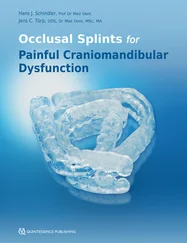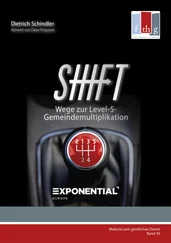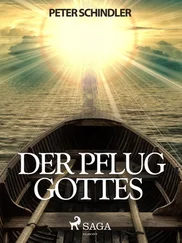Thomas Keneally
SCHINDLER’S ARK
TO THE MEMORY OF OSKAR SCHINDLER, AND TO LEOPOLD PFEFFERBERG, WHO BY ZEAL AND PERSISTENCE CAUSED THIS BOOK TO BE WRITTEN
In 1980 I visited a luggage store in Beverly Hills, California, and inquired the prices of briefcases. The store belonged to Leopold Pfefferberg, a Schindler survivor. It was beneath Pfefferberg’s shelves of imported Italian leather goods that I first heard of Oskar Schindler, the German bon vivant, speculator, charmer, and sign of contradiction, and of his salvage of a cross section of a condemned race during those years now known by the generic name Holocaust.
This account of Oskar’s astonishing history is based in the first place on interviews with 50 Schindler survivors from seven nations—Australia, Israel, West Germany, Austria, the United States, Argentina, and Brazil. It is enriched by a visit, in the company of Leopold Pfefferberg, to locations that prominently figure in the book: Cracow, Oskar’s adopted city; Płaszów, the scene of Amon Goeth’s foul labor camp; Lipowa Street, Zablocie, where Oskar’s factory still stands; Auschwitz-Birkenau, from which Oskar extracted his women prisoners. But the narration depends also on documentary and other information supplied by those few wartime associates of Oskar’s who can still be reached, as well as by the large body of his postwar friends. Many of the plentiful testimonies regarding Oskar deposited by Schindler Jews at Yad Vashem, The Martyrs’ and Heroes’ Remembrance Authority, further enriched the record, as did written testimonies from private sources and a body of Schindler papers and letters, some supplied by Yad Vashem, some by Oskar’s friends.
To use the texture and devices of a novel to tell a true story is a course that has frequently been followed in modern writing. It is the one I chose to follow here—both because the novelist’s craft is the only one I can lay claim to, and because the novel’s techniques seem suited for a character of such ambiguity and magnitude as Oskar. I have attempted, however, to avoid all fiction, since fiction would debase the record, and to distinguish between reality and the myths which are likely to attach themselves to a man of Oskar’s stature. It has sometimes been necessary to make reasonable constructs of conversations of which Oskar and others have left only the briefest record. But most exchanges and conversations, and all events, are based on the detailed recollections of the Schindlerjuden (schindler Jews), of Schindler himself, and of other witnesses to Oskar’s acts of outrageous rescue.
I would like to thank first three Schindler survivors—Leopold Pfefferberg, Justice Moshe Bejski of the Israeli Supreme Court, and Mieczyslaw Pemper—who not only passed on their memories of Oskar to the author and gave him certain documents which have contributed to the accuracy of the narrative, but also read the early draft of the book and suggested corrections.
Many others, whether Schindler survivors or Oskar’s postwar associates, gave interviews and generously contributed information through letters and documents. These include Frau Emilie Schindler, Mrs. Ludmila Pfefferberg, Dr. Sophia Stern, Mrs. Helen Horowitz, Dr. Jonas Dresner, Mr. and Mrs. Henry and Mariana Rosner, Leopold Rosner, Dr. Alex Rosner, Dr. Idek Schindel, Dr. Danuta Schindel, Mrs. Regina Horowitz, Mrs. Bronislawa Karakulska, Mr. Richard Horowitz, Mr. Shmuel Springmann, the late Mr. Jakob Sternberg, Mr. Jerzy Sternberg, Mr. and Mrs. Lewis Fagen, Mr. Henry Kinstlinger, Mrs. Rebecca Bau, Mr. Edward Heuberger, Mr. and Mrs. M. Hirschfeld, Mr. and Mrs. Irving Glovin, and many others. In my home city, Mr. and Mrs. E. Korn not only gave of their memories of Oskar but were a constant support. At Yad Vashem, Dr. Josef Kermisz, Dr. Shmuel Krakowski, Vera Prausnitz, Chana Abells, and Hadassah M’odlinger provided generous access to the testimonies of Schindler survivors and to video and photographic material.
Lastly, I would like to honor the efforts which the late Mr. Martin Gosch expended on bringing the name of Oskar Schindler to the world’s notice, and to signify my thanks to his widow, Mrs. Lucille Gaynes, for her cooperation with this project. Through the assistance of all these people, Oskar Schindler’s astonishing history appears for the first time in extended form.
TOM KENEALLY
Autumn, 1943
In Poland’s deepest autumn, a tall young man in an expensive overcoat, double-breasted dinner jacket beneath it and—in the lapel of the dinner jacket—a large ornamental gold-on-black-enamel Hakenkreuz (swastika) emerged from a fashionable apartment building in Straszewskiego Street, on the edge of the ancient center of Cracow, and saw his chauffeur waiting with fuming breath by the open door of an enormous and, even in this blackened world, lustrous Adler limousine. “Watch the pavement, Herr Schindler,” said the chauffeur. “It’s as icy as a widow’s heart.” In observing this small winter scene, we are on safe ground. The tall young man would to the end of his days wear double-breasted suits, would—being something of an engineer—always be gratified by large dazzling vehicles, would—though a German and at this point in history a German of some influence— always be the sort of man with whom a Polish chauffeur could safely crack a lame, comradely joke.
But it will not be possible to see the whole story under such easy character headings. For this is the story of the pragmatic triumph of good over evil, a triumph in eminently measurable, statistical, unsubtle terms. When you work from the other end of the beast—when you chronicle the predictable and measurable success evil generally achieves—it is easy to be wise, wry, piercing, to avoid bathos. It is easy to show the inevitability by which evil acquires all of what you could call the real estate of the story, even though good might finish up with a few imponderables like dignity and self-knowledge. Fatal human malice is the staple of narrators, original sin the mother-fluid of historians. But it is a risky enterprise to have to write of virtue.
“Virtue” in fact is such a dangerous word that we have to rush to explain; Herr Oskar Schindler, risking his glimmering shoes on the icy pavement in this old and elegant quarter of Cracow, was not a virtuous young man in the customary sense. In this city he kept house with his German mistress and maintained a long affair with his Polish secretary. His wife, Emilie, chose to live most of the time at home in Moravia, though she sometimes came to Poland to visit him. There’s this to be said for him: that to all his women he was a well-mannered and generous lover. But under the normal interpretation of “virtue,” that’s no excuse.
Likewise, he was a drinker. Some of the time he drank for the pure glow of it, at other times with associates, bureaucrats, SS men for more palpable results. Like few others, he was capable of staying canny while drinking, of keeping his head. That again, though—under the narrow interpretation of morality—has never been an excuse for carousing. And although Herr Schindler’s merit is well documented, it is a feature of his ambiguity that he worked within or, at least, on the strength of a corrupt and savage scheme, one that filled Europe with camps of varying but consistent inhumanity and created a submerged, unspoken-of nation of prisoners. The best thing, therefore, may be to begin with a tentative instance of Herr Schindler’s strange virtue and of the places and associates to which it brought him.
At the end of Straszewskiego Street, the car moved beneath the black bulk of Wawel Castle, from which the National Socialist Party’s darling lawyer Hans Frank ruled the Government General of Poland. As from the palace of any evil giant, no light showed.
Читать дальше












